Pakistan warns nuclear war with India is inching closer
Pakistan has refused to back down in their ongoing altercation with India accusing their opponent of bringing the nuclear-armed nations “closer to a major conflict.”
Asia
Don't miss out on the headlines from Asia. Followed categories will be added to My News.
Pakistan has accused India of bringing the nuclear-armed neighbours “closer to a major conflict”, as the death toll from three days of missile, artillery and drone attacks passed 50.
Pakistan’s foreign ministry spokesman Shafqat Ali Khan said that India’s “reckless conduct has brought the two nuclear-armed states closer to a major conflict.”
Military spokesman Ahmed Sharif Chaudhry told media: “We will not de-escalate – with the damages they did on our side, they should take a hit.”
“So far, we have been protecting ourselves but they will get an answer in our own timing,” he added.
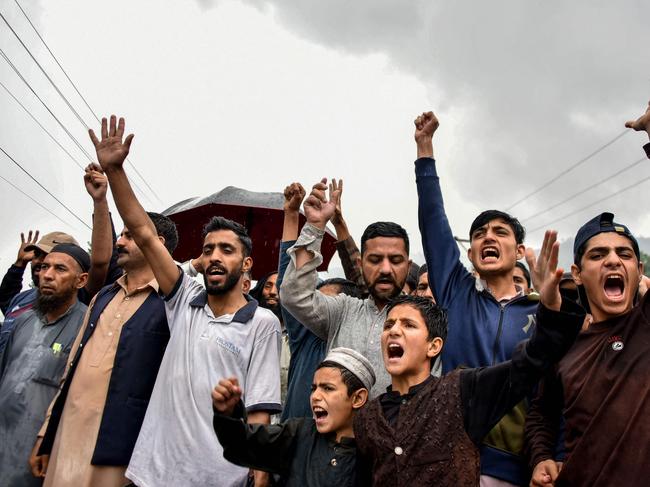
On a third day of tit-for-tat exchanges, the Indian army said it had “repulsed” waves of Pakistani attacks using drones and other munitions overnight, and gave a “befitting reply”.
Late Friday, an Indian defence source told AFP that drones had been sighted in the Indian-administered Kashmir areas of Jammu and Samba, and in neighbouring Punjab state.
Earlier, Pakistan’s military spokesman denied that Islamabad was carrying out such attacks.
On Friday, Pakistani security and government officials said five civilians – including a two-year-old girl – were killed by Indian shelling overnight in areas along the heavily militarised Line of Control (LoC), which separates Kashmir between India and Pakistan.
On the other side, a police official said one woman was killed and two men wounded by heavy shelling.
Pakistani military sources said that its forces had shot down 77 Indian drones in the last two days, with debris of many incursions seen by AFP in cities across the country.
‘ON THE BRINK OF A STRATEGIC STANDOFF’
Pakistan has warned of the possibility of nuclear war with India if violence between the neighbouring countries continue to escalate.
Pakistan’s Defense Minister Khawaja Asif issued the chilling warning in an interview with Pakistani TV channel Geo News on Thursday, saying the nuclear war threat was “clear and present.”
“Pakistan has faced such threats before and [the] region could once again be on brink of a strategic standoff,” he said.
Mr Asif had earlier vowed that Pakistan would defend itself if necessary after India launched a barrage of missiles on Wednesday in the worst clash between the two nuclear-armed countries in more than two decades.
PAKISTAN LAUNCHES MAJOR DRONE AND MISSILE ATTACK
It comes after New Delhi claimed Pakistan launched an air attack using “drones and missiles” before India retaliated.
Authorities shut down airports in three major Pakistani cities after the country’s military said it shot down 25 Indian drones.
India’s government said Thursday that Pakistan had launched an air attack overnight, before New Delhi retaliated to destroy an air defence system in the Pakistani city of Lahore.
“Pakistan attempted to engage a number of military targets ... using drones and missiles,” the defence ministry said in a statement, adding that “these were neutralised” by India’s air defence systems.
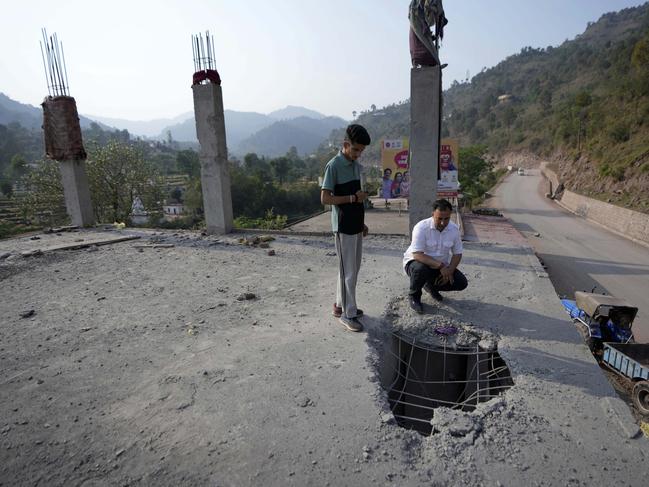
New Delhi said that areas targeted included sites in Indian-administered Jammu and Kashmir, and India’s Punjab state, including the key cities of Amritsar, Ludhiana, Chandigarh, as well as Bhuj in Gujarat state.
“The debris of these attacks is now being recovered from a number of locations,” it added.
The defence ministry said that on Thursday morning its military had “targeted air defence radars and systems at a number of locations in Pakistan”, saying that the “response
Airports in three major Pakistani cities will be closed until at least 11pm on Thursday (AEST) as violence between India and Pakistan escalates.
Pakistan’s Civil Aviation Authority made the announcement after the country’s military said it shot down Indian drones.
Karachi, Lahore and Islamabad airports will “remain closed until 6pm,” (local time), they said, citing “operational reasons”.
The Australian government was urging people to reconsider their need to travel if they had plans to go to Pakistan, while those headed to India were being advised to “exercise a high degree of caution”.
INDIA AND PAKISTAN TRADE FIRE
Indian and Pakistani soldiers exchanged gunfire overnight in Kashmir, New Delhi also said Thursday, a day after the worst violence between the nuclear-armed rivals in two decades.
Pakistani Prime Minister Shehbaz Sharif vowed to retaliate after India launched deadly missile strikes on Wednesday morning, with days of repeated gunfire along their border escalating into artillery shelling.
“We will avenge each drop of the blood of these martyrs,” Sharif said, in an address to the nation.
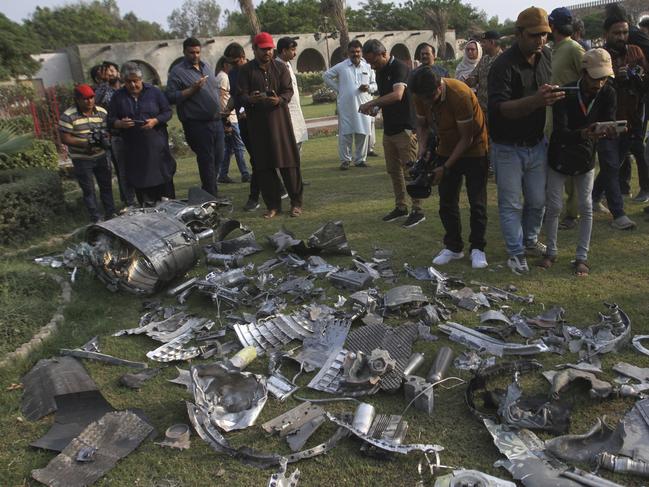
India said it had destroyed nine “terrorist camps” in Pakistan in “focused, measured and non-escalatory” strikes, two weeks after New Delhi blamed Islamabad for backing an attack on tourists in the Indian-administered side of disputed Kashmir – a charge Pakistan denies.
At least 45 deaths have been reported from both sides of the border following Wednesday’s violence, including children.
Islamabad said 31 civilians were killed by Indian strikes and firing along the border.
New Delhi said 13 civilians and a soldier had been killed by Pakistani fire. Pakistan’s military also said five Indian jets had been downed across the border, but New Delhi has not responded to the claims.
An Indian senior security source, who asked not to be named, said three of its fighter jets had crashed on home territory.
PAKISTAN WARNS IT WILL ‘AVENGE’ DEATHS FROM INDIAN STRIKES
Pakistan has warned it will “avenge” those killed by Indian air strikes that New Delhi said were in response to an attack in Kashmir, signalling an imminent escalation in the worst violence in decades between the nuclear-armed neighbours.
At least 43 deaths have been reported so far, with Islamabad saying 31 civilians were killed by the Indian strikes and firing along the border, and New Delhi adding at least 12 dead from Pakistani shelling.
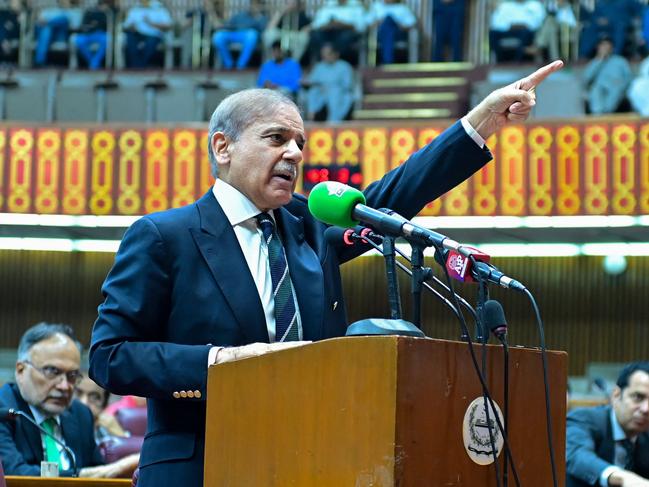
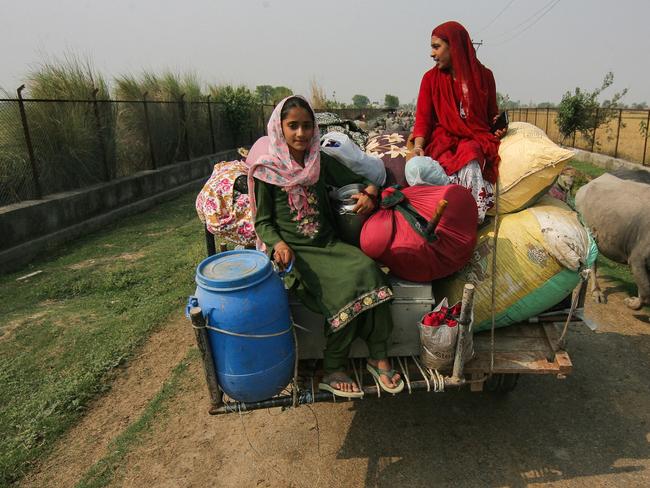
“We make this pledge, that we will avenge each drop of the blood of these martyrs,” Pakistani Prime Minister Shehbaz Sharif said in an address to the nation.
India’s army said it destroyed nine “terrorist camps” in Pakistan in the early hours of Wednesday, two weeks after New Delhi blamed Islamabad for backing an attack on tourists in the Indian-administered side of disputed Kashmir — a charge Pakistan denies.
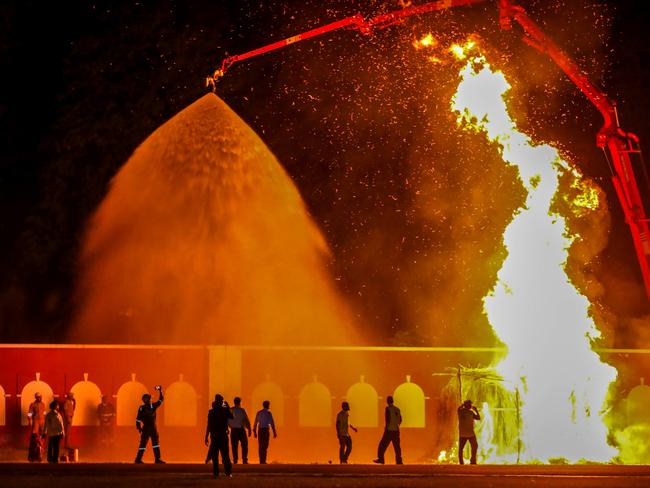
Pakistan military spokesman Ahmed Sharif Chaudhry said five Indian jets had been downed across the border.
An Indian senior security source, who asked not to be named, said three of its fighter jets had crashed on home territory.
The two sides have exchanged heavy artillery fire along the Line of Control that divides Kashmir, which both countries claim in full but administer separately.
The South Asian neighbours have fought two full-scale wars over the divided territory since they were carved out of the sub-continent after gaining independence from British rule in 1947.
India said that its actions “have been focused, measured and non-escalatory”. Pakistan Defence Minister Khawaja Muhammad Asif accused Indian Prime Minister Narendra Modi of launching the strikes to “shore up” his domestic popularity, adding that Islamabad “won’t take long to settle the score”.
‘PEOPLE ARE FLEEING’
On Thursday, the Pakistani military spokesman said firing was “ongoing” at the Line of Control and that Islamabad would take retaliatory action against the air strikes.
Chaudhry reiterated Pakistan’s “right to respond, in self-defence, at time, place, and manner of its choosing,” adding that the armed forces had been “authorised” to do so by the government.
The largest Indian strike was on an Islamic seminary near the Punjab city of Bahawalpur, killing 13 people, according to the Pakistan military.
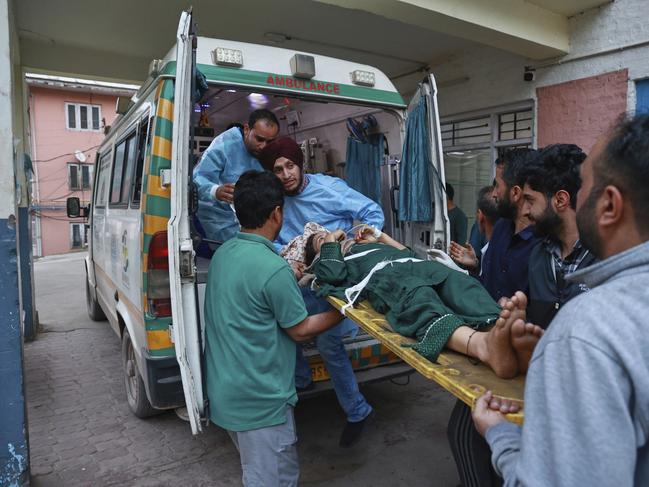
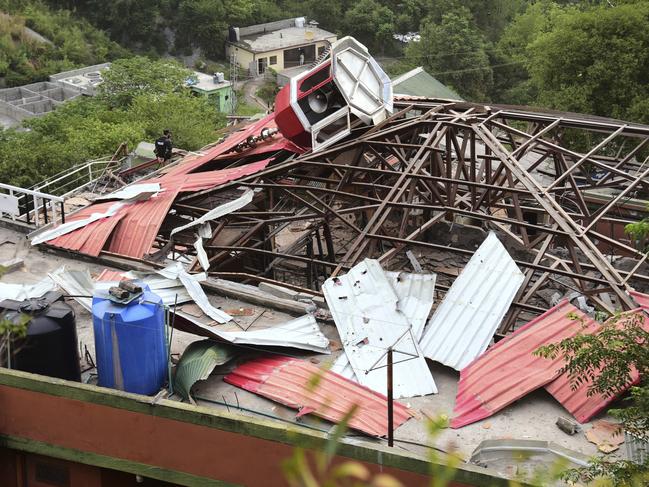
Pakistan also said a hydropower plant in Kashmir was targeted by India, damaging a dam structure, after India threatened to stop the flow of water on its side of the border.
India’s Defence Minister Rajnath Singh said the operation was New Delhi’s “right to respond” following the attack on tourists in Pahalgam in Kashmir last month.
Pakistan has denied any involvement in that assault, which killed 26 people, mainly Hindu men, on April 22.
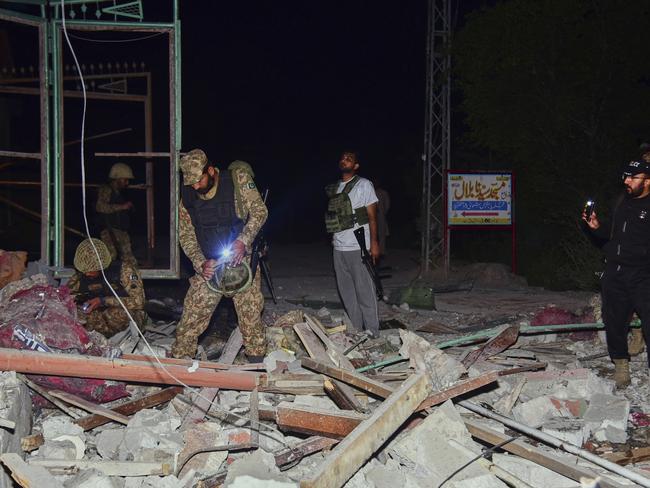
Meanwhile, Australians should reconsider their need to travel to Pakistan as the “threat of terrorist attacks and kidnapping remains very high” and be wary of border closures and flight disruptions.
Smartraveller warns Aussies in Pakistan to contact their airlines amid ongoing airspace shutdowns and “avoid large groups of people, demonstrations, and protests, as they can turn violent quickly.”
There are similar warning in place for India, particularly in the northwest region.
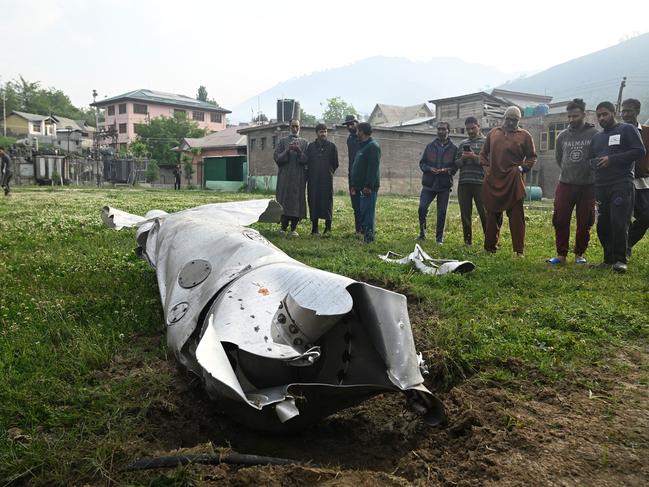
In response, Pakistan launched counter-attacks and conducted two missile tests, further raising alarm among international observers.
India, however, insisted it was not targeting military facilities. “Justice is served,” the Indian army said in a statement, adding that its strikes were “focused, measured and non-escalators in nature.”
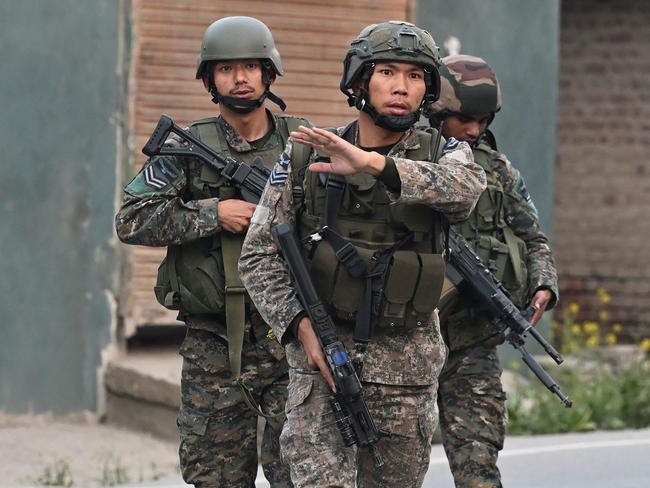
It later accused Pakistan of “indiscriminate” shelling across the Line of Control (LoC), killing three civilians.
The two neighbours, both armed with nuclear weapons, have fought multiple wars since their partition in 1947. But this latest flare-up marks one of the most volatile moments in years.
More Coverage
Originally published as Pakistan warns nuclear war with India is inching closer




